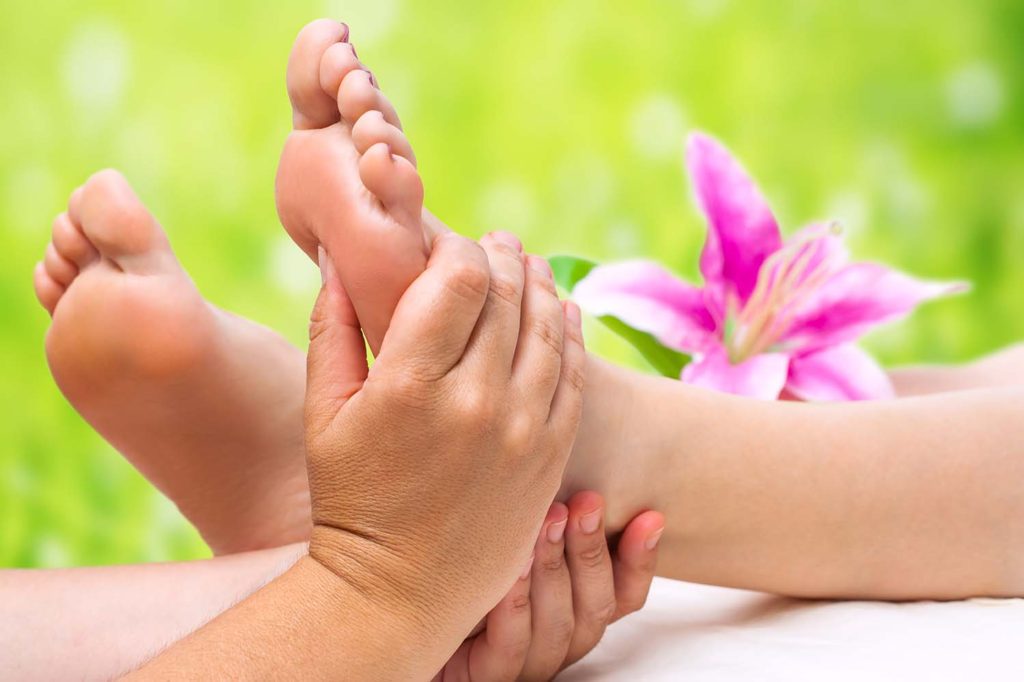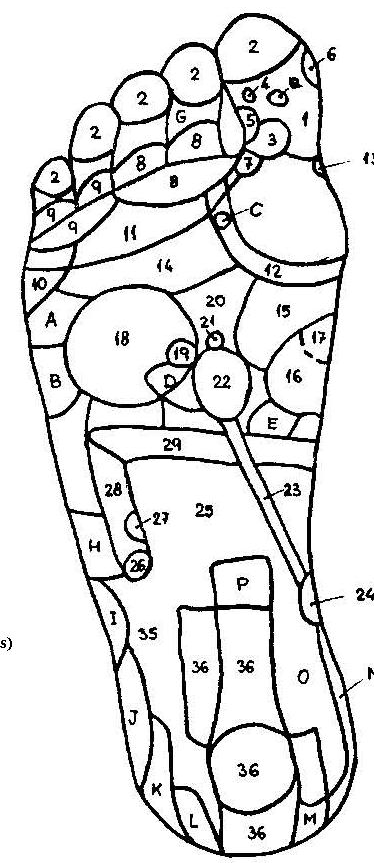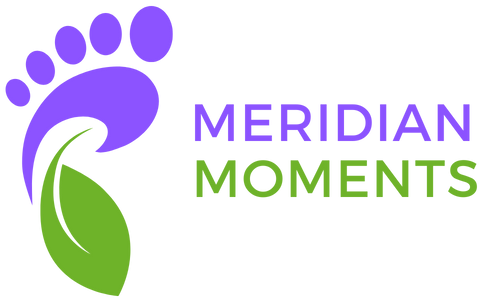What is Reflexology?
Reflexology has its origins more than 5000 years ago! The ancient Chinese are often credited with the inception of reflexology, using pressure therapies as a form of healing. These early foot massages were based on the belief that energy zones run throughout the body.
Fast forward to the early 19th century, and the principles of reflexology were further refined and expanded. Key figures such as Dr. William Fitzgerald and Eunice Ingham played instrumental roles in developing what we now know as modern reflexology.
When choosing your reflexologist, seek out a practitioner who strikes the perfect balance between professional know-how and intuitive understanding. After all, this holistic therapy is as much an art as it is a science.

Your Feet Can Restore Your Health!
No matter who you are, where you’re from, or what you do, Amy’s exceptional skills in reflexology have something to offer you. Her treatments are a universal language of relaxation and rejuvenation that resonates with bodies and minds alike.
From the moment you step into Amy’s therapy room, you’ll embark on a journey towards tranquility. Each session with her is like a mini-vacation for your mind and body, whisking you away from the stresses of daily life.
When you leave, you’ll carry with you an aura of calm and clarity, as if you’ve been cleansed from the inside out. You’ll feel uplifted, bathed in a sense of peace and well-being that lingers long after the session ends. It’s more than just a treatment; it’s an experience that redefines relaxation. So why wait? Dive into the soothing world of reflexology with Amy today!
Have you ever wondered what Reflexology is all about?
Let’s take a closer look at this fascinating therapy – one of the most popular in the world of holistic well-being.
Reflexology is based on the principle that specific points on your feet (and sometimes hands) correspond to different areas of your body. Imagine your feet as a map of your entire system—each zone reflects an organ, gland, or body part!
Here’s where it gets really interesting: reflexologists use specialised massage techniques, applying gentle pressure with their thumbs and fingers to these reflex points. The aim? To release blocked energy, restore balance, and support the body’s natural healing processes. Think of it as a reset button for your overall well-being.
And why the feet? With over 7,000 nerve endings, they are highly sensitive and deeply connected to the body’s nervous system. When stimulated, these nerve endings help to:
✔️ Promote relaxation
✔️ Reduce stress
✔️ Encourage self-healing
If you’re looking for a gentle, non-invasive therapy that supports your mind, body, and spirit from head to toe, Reflexology could be just what you need!

How can reflexology help?
One of the key ways reflexology can help is by improving circulation. Good circulation is essential for delivering oxygen and nutrients to cells and eliminating toxins. Stress and tension can hamper circulation, making the body sluggish. Reflexology could help boost circulation and lymph flow, promoting toxin removal and helping your body restore its natural balance. So, ready to put your best foot forward with reflexology?
How reflexology can help stress
In our fast-paced world, stress has become an unwelcome constant in our daily lives. As stress levels rise, many individuals are taking the reins of their own health and wellbeing into their hands. Prolonged stress can weaken our body’s ability to fend off illness, potentially impacting various aspects of life – from work to relationships and even our home life.
But here’s where reflexology steps in as a potential game-changer. This age-old therapy may help counterbalance the stresses of our modern, hectic lifestyles. How, you ask? Reflexology promotes deep relaxation, soothing both your body and mind. Picture it as a tranquil oasis amidst the chaos of everyday life.
But that’s not all! The magic of reflexology lies in its adaptability. While it’s known for its relaxing effects, the treatment can also be tweaked to be more invigorating if you’re looking for an energy boost. So whether you’re seeking tranquility or a pick-me-up, reflexology could be your perfect wellness ally. It’s time to kick stress to the curb and embrace the calming power of reflexology!
